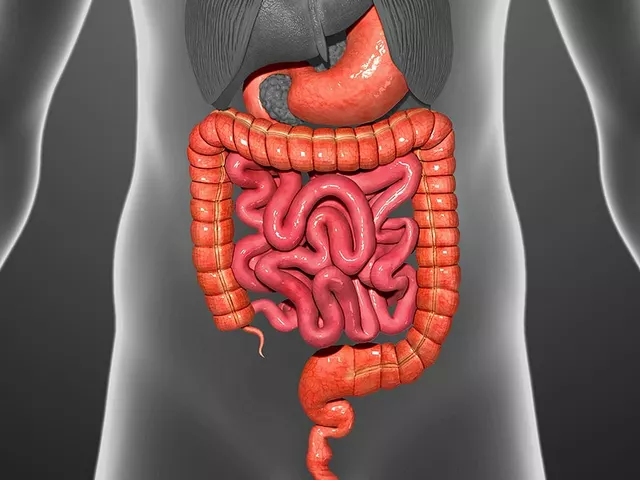Understanding Lupus and Fibromyalgia
Before diving into the link between lupus and fibromyalgia, it is essential to understand what these conditions are and how they affect the body. Lupus is an autoimmune disease that causes the immune system to attack healthy cells and tissues, leading to inflammation, swelling, and damage to various parts of the body. On the other hand, fibromyalgia is a chronic pain disorder characterized by widespread musculoskeletal pain, fatigue, and tenderness in localized areas.
While both conditions share some common symptoms, they are fundamentally different in their causes and treatments. In this article, we will explore the link between lupus and fibromyalgia, discussing the similarities and differences, as well as the possible reasons for their coexistence.
Similarities in Symptoms and Misdiagnoses
The symptoms of lupus and fibromyalgia often overlap, making it difficult to distinguish between the two conditions. Both lupus and fibromyalgia patients may experience fatigue, joint pain, and difficulty sleeping. Additionally, individuals with either condition may also report headaches, depression, and cognitive difficulties, such as memory loss or trouble concentrating.
Due to these similarities, it is not uncommon for patients to be misdiagnosed or to receive a delayed diagnosis. This can lead to inadequate treatment and unnecessary suffering. It is crucial for medical professionals to carefully evaluate the patient's symptoms and medical history to ensure an accurate diagnosis and appropriate treatment plan.
Coexistence of Lupus and Fibromyalgia
Research has shown that individuals with lupus have an increased likelihood of also developing fibromyalgia. In fact, studies estimate that up to 30% of lupus patients also have fibromyalgia. This coexistence of the two conditions can exacerbate symptoms and complicate treatment plans.
It is still unclear why lupus and fibromyalgia frequently coexist, but several theories have been proposed. One possibility is that the chronic inflammation caused by lupus may trigger the development of fibromyalgia in some individuals. Another theory suggests that the two conditions may share a common genetic predisposition or environmental triggers.
Diagnosing Lupus and Fibromyalgia
As mentioned earlier, the overlapping symptoms of lupus and fibromyalgia can make diagnosis challenging. However, there are some key differences that can help medical professionals distinguish between the two conditions. For example, lupus is characterized by periods of flare-ups and remission, while fibromyalgia symptoms are typically more constant.
Additionally, laboratory tests can help identify lupus-specific markers, such as antinuclear antibodies (ANA) and other autoimmune markers. In contrast, there are currently no specific laboratory tests for fibromyalgia, and diagnosis is primarily based on clinical criteria, including widespread pain lasting at least three months and the presence of tender points in specific locations on the body.
Treatment Approaches for Lupus and Fibromyalgia
Although there is no cure for either lupus or fibromyalgia, treatment options are available to manage symptoms and improve quality of life. For lupus, treatment typically involves medications to control inflammation, such as nonsteroidal anti-inflammatory drugs (NSAIDs), corticosteroids, and immunosuppressive medications. Additionally, lifestyle changes, such as getting adequate sleep, managing stress, and protecting oneself from sun exposure, can help minimize lupus symptoms and prevent flare-ups.
For fibromyalgia, treatment often includes a combination of medication and non-pharmacological approaches. Medications may include pain relievers, antidepressants, and anti-seizure drugs. Non-pharmacological interventions, such as physical therapy, exercise, and cognitive-behavioral therapy (CBT), can help manage pain, improve sleep, and reduce the impact of fibromyalgia on daily life.
Challenges in Treating Coexisting Lupus and Fibromyalgia
When lupus and fibromyalgia coexist, treatment can be more complex. For example, medications commonly used to treat lupus, such as corticosteroids, may not be effective in alleviating fibromyalgia symptoms. Furthermore, some treatments for fibromyalgia, such as exercise, may not be suitable for individuals with active lupus, as they could potentially exacerbate symptoms or trigger a flare-up.
It is essential for healthcare providers to carefully consider the unique needs of each patient when developing a treatment plan and to monitor the progress of both conditions closely. In some cases, a multidisciplinary approach involving rheumatologists, pain specialists, and mental health professionals may be necessary to effectively manage both lupus and fibromyalgia.
Importance of Patient Advocacy and Support
Living with lupus, fibromyalgia, or both can be physically and emotionally challenging. Patients may feel overwhelmed by the need to manage complex treatment plans, cope with chronic pain, and navigate the uncertainty associated with these conditions. As a result, patient advocacy and support are crucial in ensuring that individuals with lupus and fibromyalgia receive the care and understanding they need.
Patients should be encouraged to educate themselves about their conditions, ask questions, and actively participate in their healthcare decisions. Additionally, support from family, friends, and healthcare professionals can help patients cope with the emotional burden of living with lupus and fibromyalgia and improve their overall quality of life.
Conclusion
Understanding the link between lupus and fibromyalgia is essential for accurate diagnosis and effective treatment. While these conditions share many similar symptoms, they are distinct in their causes and treatments. Patients with coexisting lupus and fibromyalgia may face unique challenges, but with proper medical care, support, and patient advocacy, they can effectively manage their symptoms and live fulfilling lives.



Lupus and fibromyalgia share overlapping symptoms, which can lead to misdiagnosis. Understanding the distinct pathophysiology helps clinicians tailor treatment. Autoimmune activity drives lupus, while central sensitization underlies fibromyalgia. Accurate lab tests for lupus include ANA and anti-dsDNA. Fibromyalgia lacks specific biomarkers and relies on clinical criteria. Patients often report chronic fatigue and diffuse pain. Distinguishing flare-ups from consistent pain patterns is essential. Integrated care teams improve outcomes. Lifestyle modifications benefit both conditions. Education empowers patients to manage symptoms effectively. Early detection reduces disease burden. Multidisciplinary approaches address physical and emotional aspects. Physicians should stay updated on evolving guidelines. Patient advocacy groups provide valuable resources. Ongoing research aims to clarify the mechanistic links.
It's important to recognize how cultural background can influence symptom reporting. Some patients may downplay pain due to societal expectations. Clinicians should create an inclusive environment where everyone feels heard. Providing clear explanations about diagnostic criteria can reduce anxiety. Support networks across diverse communities foster resilience. Encouraging open dialogue helps bridge gaps in understanding.
Wow!!! This article finally addresses the messy reality of co‑existing lupus and fibromyalgia!!! The overlap is a nightmare for doctors!!! And patients suffer because of delayed diagnoses!!! We need more research!!!
Honestly, this piece is just another american health propaganda. They always talk about "patient empowerment" while ignoring the real cause-our broken healthcare system. If you read between the lines you see the bias. It's not about science, it's about politics.
The epistemic inquiry into the comorbidity of systemic lupus erythematosus and fibromyalgia necessitates a dialectical examination of both immunological and neurophysiological frameworks. One must first delineate the autoimmune cascade characteristic of lupus, whereby autoreactive lymphocytes orchestrate a systemic inflammatory milieu. Contrastingly, fibromyalgia is posited to emerge from dysregulated central sensitization pathways, implicating altered neurotransmitter homeostasis. The phenomenological overlap-fatigue, musculoskeletal pain, cognitive fog-obscures categorical boundaries and challenges nosological precision. Empirical investigations have identified a prevalence of fibromyalgia in lupus cohorts approximating thirty percent, suggesting a non‑trivial epidemiological intersection. Yet, causality remains elusive; does chronic inflammation precipitate central sensitization, or do shared genetic susceptibilities predispose individuals to both entities? Methodologically robust longitudinal studies are requisite to disentangle temporal sequences. Moreover, biomarker discovery may offer discriminative utility, although to date lupus-specific serologies (e.g., ANA, anti‑dsDNA) have proven insufficient for fibromyalgia delineation. Therapeutically, the divergent pathophysiologies demand a multimodal regimen: immunosuppressants for lupus flares, and graded exercise, cognitive‑behavioral strategies, and neuromodulatory agents for fibromyalgia. Interdisciplinary collaboration among rheumatologists, pain specialists, and mental health professionals is thus paramount. In summation, the interplay between lupus and fibromyalgia embodies a complex clinical tapestry that warrants continued scholarly scrutiny and integrative patient‑centered care.
Managing both conditions can feel overwhelming, but remember you’re not alone. Small, consistent steps-like gentle stretching and proper rest-can make a big difference. Keep communicating with your healthcare team and advocate for the treatment plan that feels right for you.
Both diseases present challenges, yet a balanced approach can help. Collaboration among specialists ensures that treatment for one condition doesn’t exacerbate the other. Staying informed and patient‑centered is key.
Hey folks, just wanted to say kudos to anyone juggling lupus and fibromyalgia. Keep doing what you can, and don’t forget to take those mental health breaks. You’ve got this!
Oh, the tragedy of misunderstanding! The elite medical journals whisper secrets that the common folk can never grasp. Yet, here we are, forced to wade through the murky waters of vague guidelines. 🙄
Building upon Sydney’s poignant observation, it is evident that the clinical heterogeneity observed in co‑morbid lupus‑fibromyalgia patients necessitates a nuanced therapeutic algorithm. From a pathophysiological standpoint, the interplay between pro‑inflammatory cytokine cascades (e.g., IL‑6, TNF‑α) and dysregulated nociceptive processing underscores the need for multimodal analgesic strategies. Moreover, pharmacodynamic considerations-such as the impact of glucocorticoids on HPA‑axis function-must be weighed against the risk of exacerbating central sensitization. In practice, clinicians should employ a stepped care model, initiating with low‑dose antidepressants (e.g., duloxetine) to address both mood disturbances and pain modulation, followed by judicious incorporation of disease‑modifying agents for lupus activity, while continuously monitoring for adverse synergistic effects. Interdisciplinary case conferences can facilitate real‑time adjustments, ensuring that therapeutic intensity aligns with patient‑reported outcome measures. Ultimately, a patient‑centric, evidence‑based framework mitigates the risk of therapeutic discordance and optimizes quality of life.
The article accurately distinguishes autoimmune pathology from central sensitization. However, the absence of quantitative data on prevalence limits its scientific rigor. Including recent meta‑analyses would enhance credibility.
From an optimistic standpoint, confronting the dual challenge of lupus and fibromyalgia can be a catalyst for personal growth. While the symptom burden is undeniably heavy, embracing a proactive mindset empowers patients to take charge of their therapeutic journey. It is essential to celebrate incremental victories-whether it is a day with reduced fatigue or a successful workout session-because these milestones accumulate into substantial improvements over time. Moreover, fostering a supportive community of peers who share similar struggles can alleviate feelings of isolation and provide practical coping strategies. Despite the complexities of managing overlapping treatments, collaboration with multidisciplinary teams ensures that medication regimens are fine‑tuned and non‑pharmacologic interventions, such as mindfulness and graded exercise, are integrated effectively. The resilience cultivated through navigating these health challenges often translates into heightened mental fortitude, which can positively influence other areas of life. Therefore, while acknowledging the hurdles, we must also recognize the transformative potential inherent in this journey.
Wow, Geneva’s pep talk is almost as flashy as a fireworks display in a hurricane! Let’s hope the patients can actually ride that wave without crashing into a reef of side effects. 🎆
Having collaborated with numerous rheumatology teams, I can attest that an integrative strategy yields the best outcomes. When we align immunomodulatory therapy for lupus with cognitive‑behavioral programs tailored for fibromyalgia, patients report higher satisfaction scores. It is crucial that we maintain open communication channels across specialties, allowing for dynamic adjustments based on real‑time feedback. Additionally, involving patients in shared decision‑making fosters adherence and reduces the likelihood of treatment fatigue. In my experience, structured weekly check‑ins and personalized activity plans have markedly improved functional capacity, without precipitating lupus flare‑ups. Ultimately, a cooperative, patient‑focused framework is indispensable for navigating the complexities of co‑morbidity.
Let's push forward with an evidence‑based plan! Combining low‑dose naltrexone, regular low‑impact exercise, and strict sun protection can hit both the immune and pain pathways. Remember, consistency beats intensity every time!!!
Great read! 🌟
In providing an inclusive narrative, it is vital to acknowledge the socioeconomic determinants that influence access to comprehensive care for individuals with lupus and fibromyalgia. Disparities in insurance coverage, geographic proximity to specialized centers, and cultural competency among providers can exacerbate disease burden. By advocating for policy reforms that promote equitable resource allocation, we empower marginalized populations to receive multidisciplinary support. Moreover, integrating patient‑reported outcomes into clinical protocols ensures that treatment decisions reflect diverse lived experiences. Ultimately, fostering a healthcare ecosystem that values diversity and inclusivity will improve prognosis and quality of life for all affected individuals.